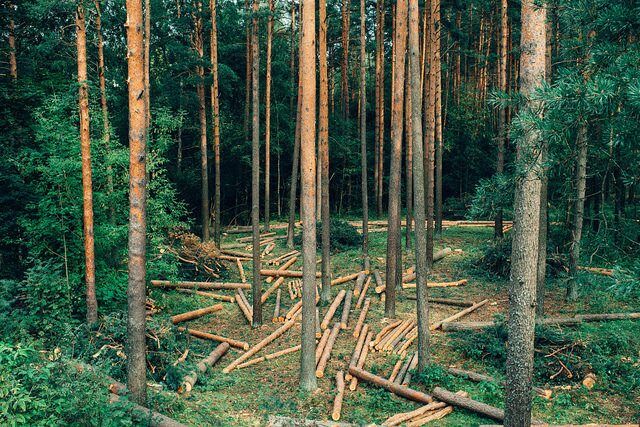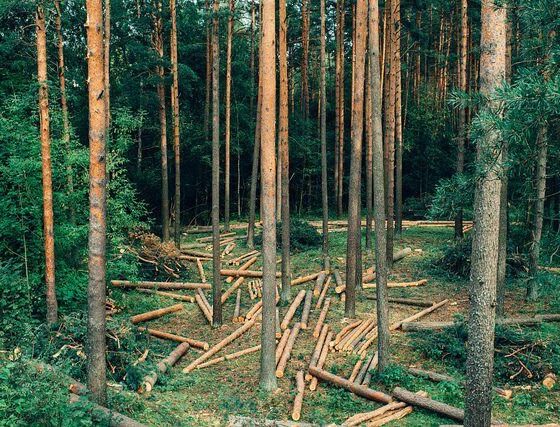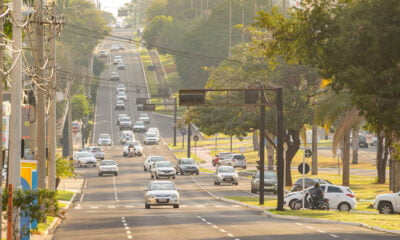

Energy
New Sustainability Platform Brings Us Closer To Deforestation-Free Supply Chains
Trase, launched SEI and GCP, promotes transparency to reduce supply chain complexity.
The Stockholm Environment Institute (SEI) and the Global Canopy Programme (GCP) announce the launch of Trase – Transparency for Sustainable Economies – a powerful new sustainability platform that enables companies, financial institutions, governments and others to better understand and address the social and environmental impacts linked to their supply chains.
Trase’s powerful new approach draws on vast sets of largely untapped production, trade and customs data, for the first time laying bare the flows of globally traded commodities – such as palm oil, soya, beef and timber – that are driving deforestation and other impacts worldwide. From fine-scale production landscapes to consumer countries, it identifies the ports of export and import, and traders and transporters involved – a vital step in linking these landscapes and actors to manufacturers, retailers and investors in consumer markets.
“We see Trase as the start of a data-driven revolution in supply chain transparency” said Javier Godar, a Senior Research Fellow at the Stockholm Environment Institute (SEI) and one of the platform’s founders. “The blanket transparency offered by Trase can help catalyse improvements across the board: in production practices, procurement and investment policies and the governance of supply chains by both producer and consumer governments”.
Trase is a direct response to the ambitious commitments made by leaders across sectors to achieve deforestation-free supply chains by 2020 – commitments that require significant advances in transparency in order to implement. Lucas Urbano, PMO for major manufacturer Danone’s Climate Nature and Cycle Sustainability Strategy said “Transparency is the first major step in undertaking the challenge of eliminating deforestation from our value chain. Trase represents a new kind of radical transparency than can help to take the discussion to another level, moving away from the blame game to start a practical discussion around issues and solutions. We are entering a new era where data and information will be universally available, so the only thing we can do is face the problem and change.”
Despite the ambitious commitments to zero deforestation, it is difficult to assess if companies are making progress on these commitments without information on where they source from and the impacts in those areas – advances newly available with Trase.
“Trase offers the first opportunity to monitor progress towards zero deforestation commitments by tracking changes in how downstream actors are linked to different production regions with different levels of deforestation and environmental performance.” said Charlotte Streck, Co-founder and Director, Climate Focus.
Covering Brazilian soy at launch, Trase will focus on expanding to include all Latin American soy by 2017, followed by beef in Argentina, Brazil and Paraguay, and on to other major commodities including Brazilian timber and Indonesian oil palm. Over the next 5 years Trase aims to cover over 70% of total production in major forest risk commodities. .
Sarah Lake, Head of the Supply Chain programme at Global Canopy Programme states, “The opacity of global supply chains has been one the biggest challenges for companies trying to live up to their sustainability commitments. Trase can detail the trade of key commodities, from the major growing regions to the country of consumption, together with key information on the sustainability risks and performance measures. It assesses both production areas and different supply chain actors all at the push of a button.”
To see the beta Trase platform in action visit www.trase.earth


 Environment10 months ago
Environment10 months agoAre Polymer Banknotes: an Eco-Friendly Trend or a Groundswell?

 Environment12 months ago
Environment12 months agoEco-Friendly Home Improvements: Top 7 Upgrades for 2025

 Features9 months ago
Features9 months agoEco-Friendly Cryptocurrencies: Sustainable Investment Choices

 Features10 months ago
Features10 months agoEco-Friendly Crypto Traders Must Find the Right Exchange





























